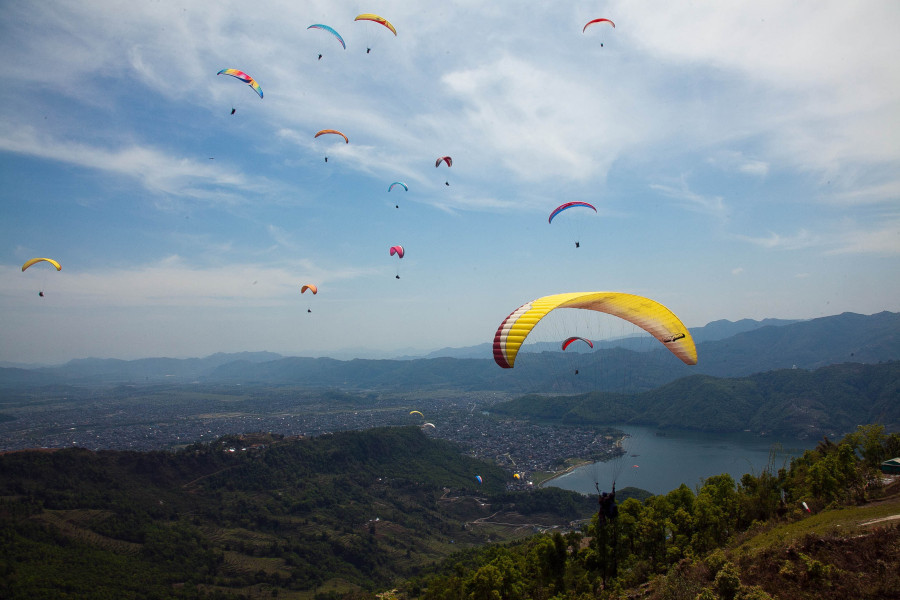Editorial
Holidaying amid pandemic
We must tread with extreme precautions if we want to pursue our wanderlust.
The social media sphere is flooded with posts of people holidaying in remote mountain areas, scenic locations and resorts. It’s a radical act, given how the Covid-19 situation continues to deteriorate in Nepal, especially in the Kathmandu Valley and other hotspots while health agencies and experts recommend avoiding all nonessential travel. But the yearning to travel after months of the stay-home order and mobility restrictions has picked up steam since the holiday season last month. People have hit the road, pandemic or not, and there are equally attractive travel packages to choose from.
The desire to travel is only natural. Holidaying amid coronavirus proves how important it is to rejuvenate and engage with our family and friends. It is also good news that the domestic travel and tourism industry is showing some signs of a rebound after a devastating blow this year. But as we venture out to fulfil an innate desire further fuelled by social media and influencers, we cannot let our guard down and forget the fact that the coronavirus situation is real, and can seriously sicken and even kill people.
It is, therefore, imperative that we tread with extreme precautions as we pursue our wanderlust, especially with the onslaught of the flu season as the mercury dips. Hyper-local tourism can be a boon and the first measure for recovery of the travel and tourism industry in the country, which has taken a direct blow with no international tourists in both the spring and autumn seasons. But this is an opportunity that the government, stakeholders and the public must capitalise on with extreme caution and solidarity.
Foremost, there is an urgent need to formulate and implement a standard operating procedure that adheres to hygiene and safety guidelines to mitigate the high risks Covid-19 poses. This calls for identifying and resolving huge challenges in the travel and tourism industry that is slowly reopening. This is crucial because more and more people will plan to travel, which increases the chances of infection and further spread of the virus across the country. Capitalising on this opportunity will thus require a massive transformation in the way we operate. It is not business as usual, and the current lack of measures to contain the spread, be it expanding testing or implementing a tracing mechanism, does not offer the confidence we need.
The government needs to ensure that people are safe. It needs to clearly communicate the risks involved while travelling and must formulate a range of protocols and strictly monitor their implementation. Based on scientific consensus, many countries have already adopted safety protocols as prescribed by the World Travel and Tourism Council to ensure a safe travel experience. From travel points to hotels and restaurants, there are strict sanitising and cleaning procedures and measures to employ physical distancing and minimum contact, which are primary defence measures against the coronavirus.
If getting infected is the primary risk, the burden of treatment and lack of a proven pharmaceutical treatment are far too costly and uncertain. The grief that deaths bring is immeasurable. We are in this together as we try to chart our way through the pandemic. Restrictions might have relaxed for now, and the race for a vaccine offers some glimmer of possibility, but there’s a long way to go, and if we want to travel, we need to adapt. There’s no alternative but just a storm of issues that will require a scientific approach and good habits for just about everything in our lives.
This is the resilience we need to develop because simply reopening the economy with zero protocols in place to contain the spread of the coronavirus will only worsen our situation. If that’s not where we plan to be, we need to introduce measures that work immediately, but not just in principle.




 9.89°C Kathmandu
9.89°C Kathmandu














